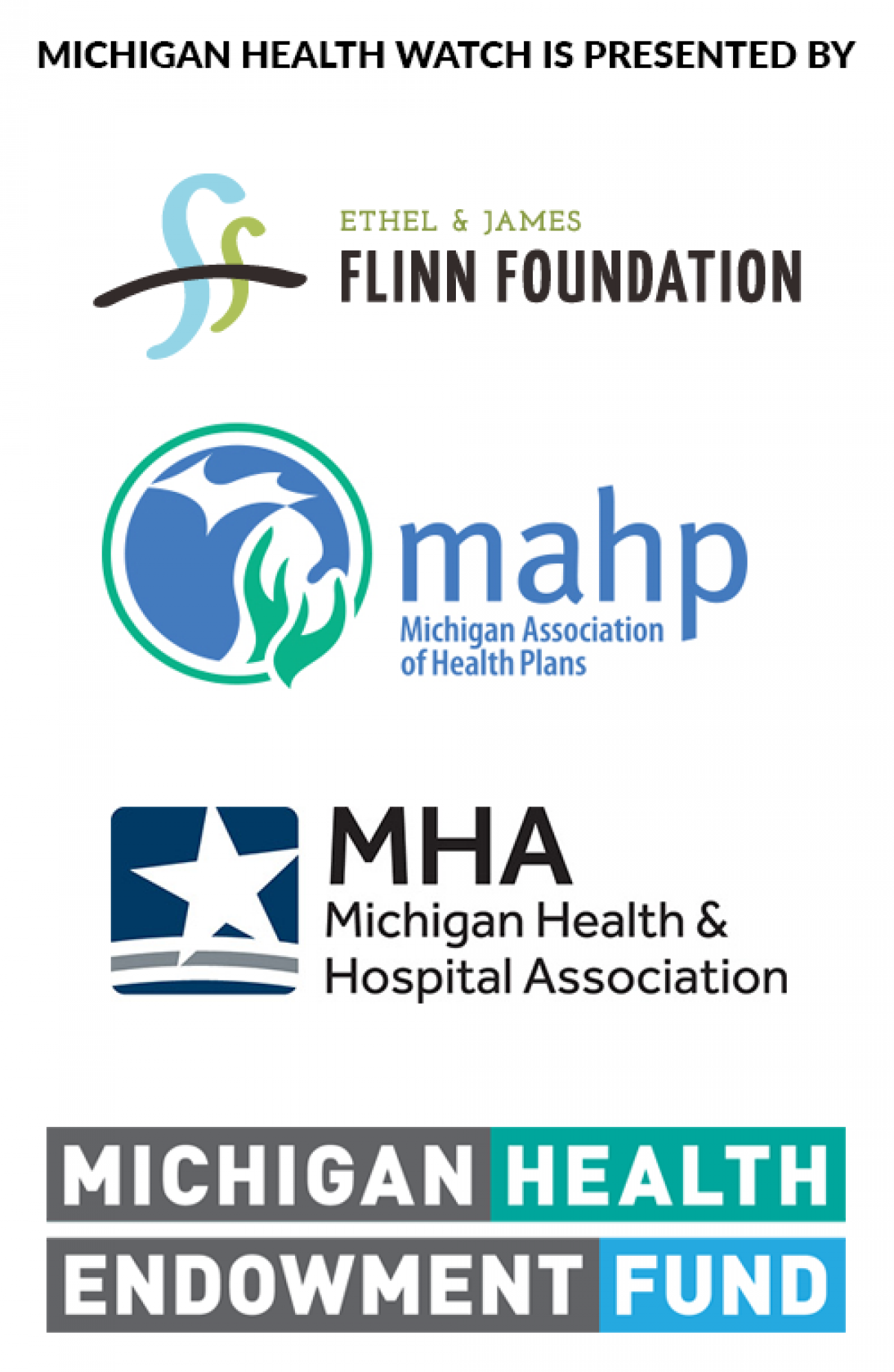Michigan’s abortion rate among nation’s highest. What you need to know.
Abortions in Michigan
Abortion rates are higher in Metro Detroit and southern Michigan, where there is better access to abortion clinics, which are in fewer than 10 of the state’s 83 counties.

August 2019: Planned Parenthood says 4,200 in Michigan at risk over abortion 'gag rule'
The number of abortions in Michigan and nationwide has fallen dramatically in the past 25 years, but the state still has one of the highest abortion rates in the United States.
Nearly 1 in 5 pregnancies, excluding miscarriages, in Michigan ended in abortion in 2015, according to the U.S. Centers for Disease Control and Prevention.
The numbers are among those that undergird an emotional debate that has exploded in statehouses nationwide in the past few weeks, as lawmakers debate dramatic restrictions on abortion.
The moves follow a rightward shift to the U.S. Supreme Court following last year’s appointment of Justice Brett Kavanaugh, which stoked hopes of reversing the Roe v. Wade high court decision in 1973 that made abortion legal nationwide.
In 2015, only New York, Connecticut, Delaware and Massachusetts had higher rates of pregnancy that ended in abortion than Michigan, according to the latest data by the CDC. New York had the highest number; 1 in 4 pregnancies there ended in abortion in 2015.
Last week, Michigan’s Republican-controlled Legislature voted to ban a procedure known as dilation and evacuation, which comprised 7 percent of Michigan’s 26,594 total abortions in 2017.
Related Michigan abortion stories:
Democratic Gov. Gretchen Whitmer vows a veto, while Right to Life Michigan has announced it intends to collect signatures to place the issue before voters.
Two other efforts, meanwhile, focus on what abortion opponents refer to as the fetal heartbeat. A citizen group, the Michigan Heartbeat Coalition, launched a ballot initiative Tuesday to prohibit abortion after the detection of a heartbeat. The measure includes 2-to-4 year prison sentences for providers who violate the ban.
Last week, Sen. Lana Theis, R-Brighton, proposed a bill that would require providers to determine whether fetal heartbeats exist before performing abortions. The bill requires providers to ask patients if they want to hear the heartbeat before moving forward with an abortion.
Few issues are as emotional as abortion. Here’s a look at the numbers and some of the arguments that frame the debate.
What is Dilation and Evacuation?
This procedure is used more often as the pregnancy progresses and the fetus grows. In Michigan in 2017, the outpatient procedure known as D&E was most often provided in the first part of the second semester, between 13 and 20 weeks. In this out-patient procedure, a provider dilates the cervix and uses forceps to remove the fetus in pieces.
The procedure was performed 1,777 times in Michigan in 2017 – roughly half of all second-trimester abortions that year, according to data compiled by the Michigan Department of Health & Human Services.
To abortion opponents, the procedure is "dismemberment abortion,” which they call “barbaric.” The American College of Obstetricians and Gynecologists has said the procedure is safer to the mother in the second trimester than alternatives such as medication-induced abortions or another procedure known as “suction curretage.” That involves using suctioning and scraping instruments to end pregnancies.
An exchange in the Michigan House this month dramatically illustrated the divide.
State Rep. Vanessa Guerra, D-Saginaw, pressed Rep. Pamela Hornberger, R-Chesterfield, about the risks associated with the procedure.
“Is there a concern that, not being a doctor, perhaps you shouldn’t draft legislation that [ties] the hands of medical experience of the doctors who have the medical experience to do such work?” Guerra said.
Hornberger, who sponsored one of the bills, responded: “I’m concerned about children being ripped apart in the womb when there is an alternative method at every stage of pregnancy.”
Michigan's abortion rate among highest
Of the 46 states with comparable data, Michigan has the fourth highest abortion rate. Rates represent the number of abortions annually for each 1,000 women between ages of 15 and 44. (Note: California, Florida , Maryland and New Hampshire are not included.)
| Rank | State | Rate |
|---|---|---|
| 1 | New York | 22 |
| 2 | Delaware | 16 |
| 3 | Connecticut | 14.5 |
| 4 | Michigan | 14 |
| 5 | Illinois | 13.7 |
| 6 | New Jersey | 13.5 |
| 7 | Pennsylvania | 13.3 |
| 8 | Massachusetts | 13.1 |
| 9 | Georgia | 12.7 |
| 10 | Washington | 12.2 |
How common is abortion?
Less than it was a generation ago, but the rate is inching up in Michigan.
In 1982, the state had 43,512 abortions, a rate of about 20 abortions for every 1,000 women who were 15 to 44 years old, and it roughly mirrored a national decline.
In 2017, Michigan’s rate had fallen to 14 abortions for every 1,000 women, but was slightly up from previous years. The national rate was nearly 12 per 1,000 in 2015, the last year of available data.
Provider information by location isn’t available and rates vary dramatically in Michigan.
Wayne County had 10,218 abortions in 2017, or 29.4 per 1,000 women. That’s more than triple the rate in the Upper Peninsula.
Who gets abortions?
Mostly, women in their 20s, according to state figures.
Teenagers accounted for fewer than 1 in 10 Michigan abortions in 2017 - 2,320 of 25,757. (Twelve of those teens were married.)
Nearly 3 in 10 abortions were for women older than 30; 805 of those for women 40 and older.
In nearly half of the abortions in Michigan, women reported having at least one previous abortion. Nearly 1 in 4 reported more than one abortion.
In 2017, nearly 2 in 3 women getting abortions in Michigan and nationally reported previously giving birth.
When do women get abortions?
Among the abortions performed in 2017 in Michigan, 87 percent were performed during the first trimester.
Two in five abortions were triggered by the prescription abortion pill; most others were done by “suction curretage,” a procedure in which a provider uses suctioning and scraping instruments to end the pregnancy.
Who pays?
Nearly 93 percent of the time, the costs in 2017 were not covered by insurance.
How dangerous is abortion?
Both nationally and in Michigan, complications appear to be rare.
In 2017, Michigan providers reported 14 immediate complications from abortions, including 11 from cervical laceration and hemorrhaging. That’s a rate of about 5.3 for every 10,000 abortions. An additional 15 complications were reported within seven days.
As a point of comparison, there are about 147 severe complications for every 10,000 births in 2015 nationally, according to a report in September by the U.S. Agency for Healthcare Research & Quality.
Staff Writer Mike Wilkinson contributed.
See what new members are saying about why they donated to Bridge Michigan:
- “In order for this information to be accurate and unbiased it must be underwritten by its readers, not by special interests.” - Larry S.
- “Not many other media sources report on the topics Bridge does.” - Susan B.
- “Your journalism is outstanding and rare these days.” - Mark S.
If you want to ensure the future of nonpartisan, nonprofit Michigan journalism, please become a member today. You, too, will be asked why you donated and maybe we'll feature your quote next time!








